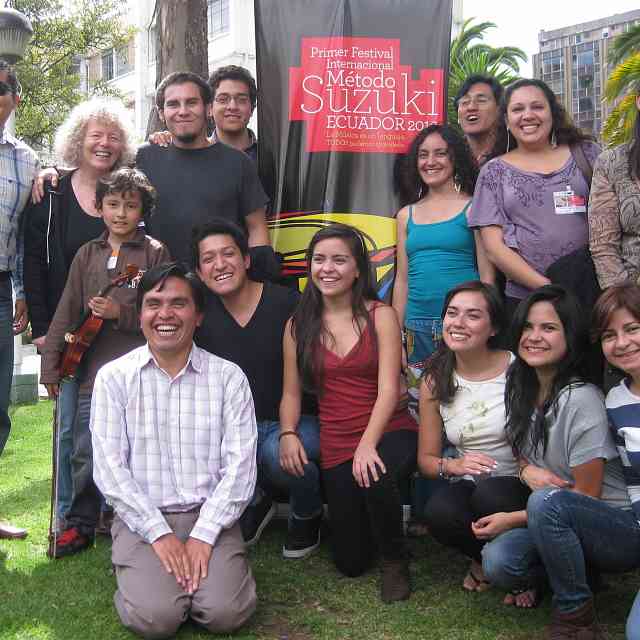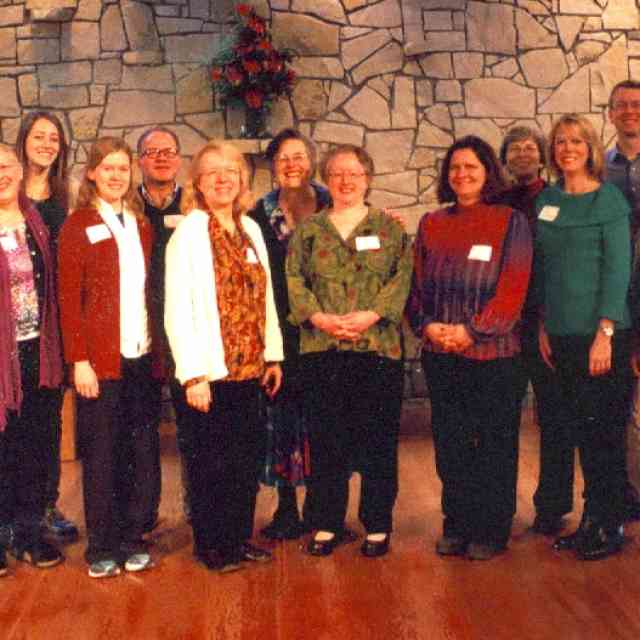
“If a musician wants to be a finer artist, he must first be a finer person.”
We are all familiar with the many quotes from Dr. Suzuki like this one, teaching students to be thoughtful to others. The ideas of learning through listening, imitation, repetition, etc., associated with Dr. Suzuki’s mother tongue approach are really only half of his method. He gave a great deal of time and effort in his lessons working on students character development.
As a Suzuki teacher in America today, following Dr. Suzuki’s model for teaching violin using the mother tongue method can sometimes be awkward. The ideas of reviewing old repertoire repeatedly and delayed note-reading are foreign ideas to American cultural ideas of education. We find ways, however, and are able to achieve great results.
As I observe other Suzuki teachers in private studios, workshops and institutes, I see great creativity in motivating students musically. I see teachers who are wonderful role models, teaching children difficult things in a very respectful and loving way. I have participated in teacher discussions as they express admiration for Dr. Suzuki’s teaching ideas and humanitarian efforts. Many teachers, however, seem to struggle with how to translate these ideas in their studios. It isn’t easy to follow in his footsteps and discuss with students how to build a beautiful heart as a part of their musical development.
I started reflecting on my own teaching. How many times had I assigned a student to help wash the dishes in addition to reviewing Lightly Row? Never – not directly. So I started thinking about why.
I believe this is hard for us to communicate as teachers because it doesn’t seem practical. American society is different from Japan’s. Americans have a deep desire to not offend anyone else and leave many things unsaid as a result. As American Suzuki teachers, we have to navigate carefully through complex waters in order to not offend a student or parent, and thus risk losing them.
I believe teachers have an underlying fear that if we start assigning students moral value lessons, parents may react: “I signed up for music lessons, not character lessons.” In all reality though, signing up for Suzuki method lessons should mean signing up for good character lessons.
I started thinking about a way I could comfortably bring forth Dr. Suzuki’s ideas of character development into my classroom. It was my students’ actions that inspired me to come up with “Project Beautiful Heart.” I rent out Sunday school classrooms during the week from a local church. The Sunday school teachers had a bulletin board in the hallway with a paper tree and an envelope full of blank leaves on the side. Students were to fill out ways they had been helpful to others during the week on the leaves and place them on the tree.
I was quite moved when I noticed that many of my own students who weren’t members of this church began filling out the leaves. Within a few months, the board was covered. I decided to copy the Sunday school’s idea and create a “Project Beautiful Heart” board in my classroom.
On the bulletin board is a picture of Dr. Suzuki and many of his loving quotes around him. Next to it is an envelope of blank yellow stars. I typed up a flier to give to parents explaining how it works. I asked my students to start thinking of charitable ways they could use their musical abilities to help others. Each time they perform a charitable musical act, they are welcome to fill it out on a star and place it on the board. I explained that this would make Dr. Suzuki very happy, and would be a great way to memorialize him.
A year later, our board is covered with stars. The students are excited about it, and I have yet to have a parent complain about trying to teach their children to be thoughtful and charitable.
When I meet with parents of potential new students, I show them the bulletin board to help explain what signing up for Suzuki method lessons really means. It has always brought a positive reaction.
I’d like to use this article as a way to share information on “Project Beautiful Heart” with other music teachers. I hope they will join in and find it a valuable addition to their classrooms, as well as a helpful tool in sharing Dr. Suzuki’s true message.








